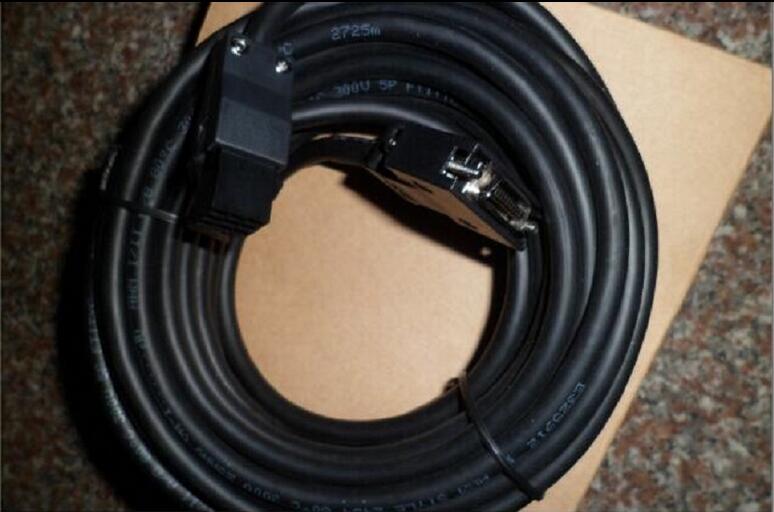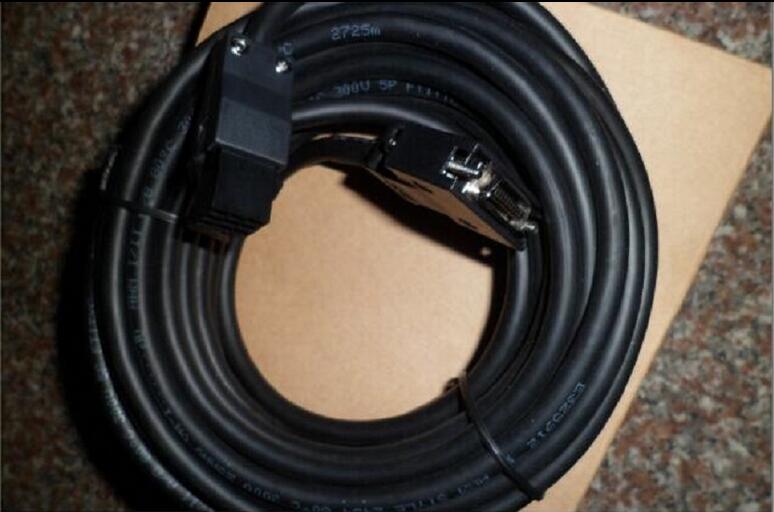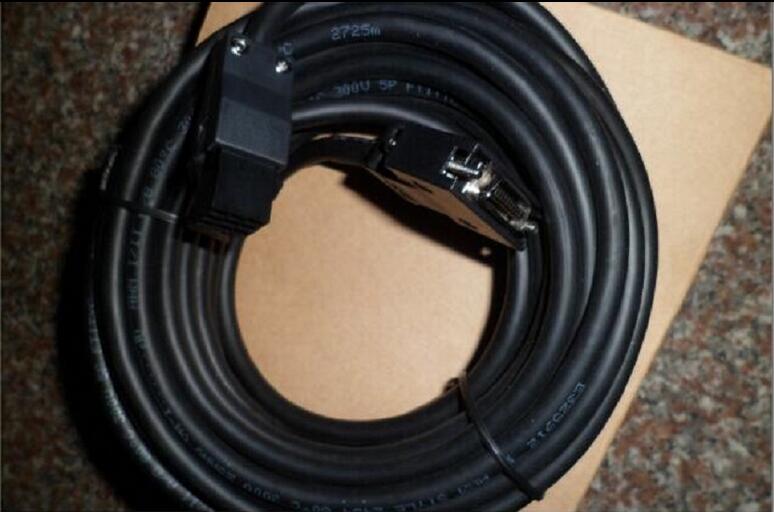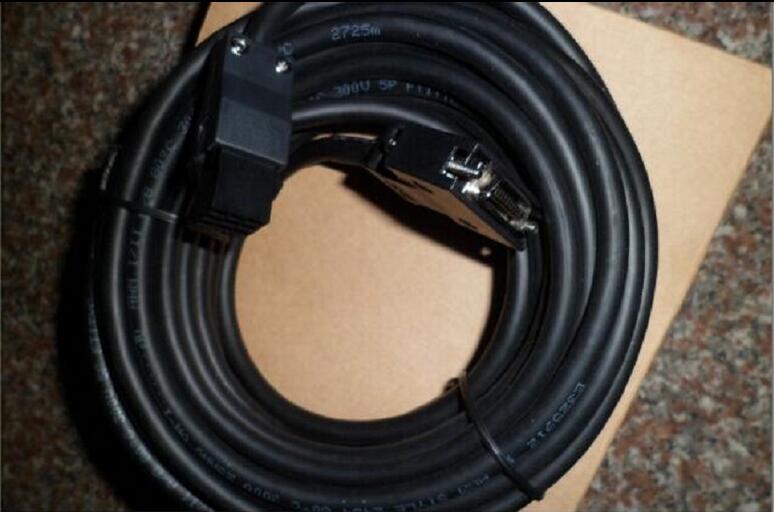Brand Sort:
MITSUBISHI
MITSUBISHI MR-BKS1CBL10M-A1-L Price
- Brand: MITSUBISHI
- Country: JAPAN
- Name: Cable for electromagnetic brake
- Model: MR-BKS1CBL10M-A1-L
- Price: U.S.$ 89.83
MITSUBISHI MR-BKS1CBL10M-A1-L
Axis of control: 3 axis linkage, 3 axis independence.
Interpolation function: 3 axis linear interpolation, 3 axis arc interpolation.
A1SD75 series components show the MITSUBISHI in the manufacture and design of CNC, frequency converter,
Integrated technical experience in servo system and PLC.
These components have a wealth of features that are sufficient to meet the highest requirements in the application of positioning control MR-BKS1CBL10M-A1-L
A1SD75M, SCC net compatible controller, SSC network is the MITSUBISHI servo system control network.
In this network, the MR-H-13, MR-J-B, and MR-J2 servo amplifiers can be connected to a controller via a network system,
The connection is replaced by a pulse sequence and a voltage signal. Input points: 32 points.
Output points: 32 points.
Output form: transistor.
Connected programmable logic controller: FX1NC, FX2NC, FX3UC.
FX2NC expansion module can be directly connected to the FX1NC, FX2NC, PLC FX3UC on the expansion of the input and output.
Do not need to connect the cable and so on, therefore can carry on the compact expansion. Type: general purpose AC servo amplifier MR-E series.
Rated output: 2.0kw.
Interface type: general purpose pulse interface.
KH003 special mark for Super MR-E.
High performance and easy to operate, reduce work load.
Enhanced system cost performance.
High performance, high precision positioning (servo motor encoder resolution: 131072).
High response.
Suppression of vibration by adaptive vibration suppression control.
Using personal computer and servo setup software to optimize tuning.
Has 2 types of interfaces:
Position control and speed control with pulse train interface.
The analog input interface is used for speed control and torque control. Oil resistant cap for 10.4 inch screen.
Applicable model: GT16. 10BASE5.
PLC is introduced by the relay control technology after the development of micro processing technology,
Can be easily and reliably used for switching control.
As the analog quantity can be converted into digital quantity, the number of digital quantity is just a number of switching value,
Therefore, after the conversion of analog, PLC can also be reliable for processing control.
Because the continuous production process often has the analog quantity, the analog quantity control is sometimes called process control.
Analog quantity is not electricity, and PLC can only handle digital quantity, quantity of electricity.
All to realize the conversion between them to have the sensor, the analog quantity into a number of power.
If this power is not standard, but also through the transmitter,
The non-standard power into a standard electrical signal, such as 1-5V, 4-20mA, 0-10V, etc..
At the same time, there is also an analog input unit (A/D),
Transform these standard electrical signals into digital signals,
The analog output unit (D/A), in order to transform the digital quantity after PLC processing into analog quantity -- standard electric signal.
So the standard telecommunication number, the conversion between the number of operations to use a variety of computing.
This requires the resolution of the analog unit and the standard electrical signal.
The length of time required to execute the instruction, the length of the user''s program, the type of instruction, and the speed of the CPU execution are very significant,
Generally, a scanning process, the fault diagnosis time,
Communication time, input sampling and output refresh time is less,
The execution time is accounted for the vast majority of.
The structured text programming language uses the computer description method to describe the various kinds of relations between the various variables in the system,
Complete the required function or operation.
Most PLC manufacturers use structured text programming language similar to BASIC language, PASCAL language or C language and other advanced languages,
But in order to be convenient, the expression methods of the statement and the types of statements are simplified.
Structured text programming language features: the use of high-level language programming, you can complete the complex control operations,
Need to have a certain level of computer knowledge and programming skills,
Higher requirements for engineering designers. Poor visibility and operability.
Switching value, also known as logic, refers to only two values, 0 or 1, ON or OFF.
It is the most common control, it is the advantage of PLC control,
Is also the most basic application of PLC.
Switch volume control is designed to,
According to the current input combination of the switch quantity and the history of the input sequence,
So that PLC generates the corresponding switching output,
In order to make the system work in a certain order.
So, sometimes also known as the order control.
And sequential control is divided into manual, semi-automatic or automatic.
And the control principle is decentralized, centralized and hybrid control three.
MR-BKS1CBL10M-A1-L Operation manual/Instructions/Model selection sample download link: /searchDownload.html?Search=MR-BKS1CBL10M-A1-L&select=5
Interpolation function: 3 axis linear interpolation, 3 axis arc interpolation.
A1SD75 series components show the MITSUBISHI in the manufacture and design of CNC, frequency converter,
Integrated technical experience in servo system and PLC.
These components have a wealth of features that are sufficient to meet the highest requirements in the application of positioning control MR-BKS1CBL10M-A1-L
A1SD75M, SCC net compatible controller, SSC network is the MITSUBISHI servo system control network.
In this network, the MR-H-13, MR-J-B, and MR-J2 servo amplifiers can be connected to a controller via a network system,
The connection is replaced by a pulse sequence and a voltage signal. Input points: 32 points.
Output points: 32 points.
Output form: transistor.
Connected programmable logic controller: FX1NC, FX2NC, FX3UC.
FX2NC expansion module can be directly connected to the FX1NC, FX2NC, PLC FX3UC on the expansion of the input and output.
Do not need to connect the cable and so on, therefore can carry on the compact expansion. Type: general purpose AC servo amplifier MR-E series.
Rated output: 2.0kw.
Interface type: general purpose pulse interface.
KH003 special mark for Super MR-E.
High performance and easy to operate, reduce work load.
Enhanced system cost performance.
High performance, high precision positioning (servo motor encoder resolution: 131072).
High response.
Suppression of vibration by adaptive vibration suppression control.
Using personal computer and servo setup software to optimize tuning.
Has 2 types of interfaces:
Position control and speed control with pulse train interface.
The analog input interface is used for speed control and torque control. Oil resistant cap for 10.4 inch screen.
Applicable model: GT16. 10BASE5.
PLC is introduced by the relay control technology after the development of micro processing technology,
Can be easily and reliably used for switching control.
As the analog quantity can be converted into digital quantity, the number of digital quantity is just a number of switching value,
Therefore, after the conversion of analog, PLC can also be reliable for processing control.
Because the continuous production process often has the analog quantity, the analog quantity control is sometimes called process control.
Analog quantity is not electricity, and PLC can only handle digital quantity, quantity of electricity.
All to realize the conversion between them to have the sensor, the analog quantity into a number of power.
If this power is not standard, but also through the transmitter,
The non-standard power into a standard electrical signal, such as 1-5V, 4-20mA, 0-10V, etc..
At the same time, there is also an analog input unit (A/D),
Transform these standard electrical signals into digital signals,
The analog output unit (D/A), in order to transform the digital quantity after PLC processing into analog quantity -- standard electric signal.
So the standard telecommunication number, the conversion between the number of operations to use a variety of computing.
This requires the resolution of the analog unit and the standard electrical signal.
The length of time required to execute the instruction, the length of the user''s program, the type of instruction, and the speed of the CPU execution are very significant,
Generally, a scanning process, the fault diagnosis time,
Communication time, input sampling and output refresh time is less,
The execution time is accounted for the vast majority of.
The structured text programming language uses the computer description method to describe the various kinds of relations between the various variables in the system,
Complete the required function or operation.
Most PLC manufacturers use structured text programming language similar to BASIC language, PASCAL language or C language and other advanced languages,
But in order to be convenient, the expression methods of the statement and the types of statements are simplified.
Structured text programming language features: the use of high-level language programming, you can complete the complex control operations,
Need to have a certain level of computer knowledge and programming skills,
Higher requirements for engineering designers. Poor visibility and operability.
Switching value, also known as logic, refers to only two values, 0 or 1, ON or OFF.
It is the most common control, it is the advantage of PLC control,
Is also the most basic application of PLC.
Switch volume control is designed to,
According to the current input combination of the switch quantity and the history of the input sequence,
So that PLC generates the corresponding switching output,
In order to make the system work in a certain order.
So, sometimes also known as the order control.
And sequential control is divided into manual, semi-automatic or automatic.
And the control principle is decentralized, centralized and hybrid control three.
MR-BKS1CBL10M-A1-L Operation manual/Instructions/Model selection sample download link: /searchDownload.html?Search=MR-BKS1CBL10M-A1-L&select=5
...more relevant model market price >>>>
Related products
MITSUBISHI
Cable for electromagnetic brake
MR-BKS1CBL5M-A2-H

The length of the line: 5M.
IP level: IP
MITSUBISHI
Cable for electromagnetic brake
MR-BKS1CBL10M-A1-L

The length of the line: 10M.
IP level: I
MITSUBISHI
Cable for power supply of servo motor
MR-PWS1CBL10M-A1-L

The length of the line: 10M.
IP level: I
MITSUBISHI
Cable for electromagnetic brake
MR-BKS1CBL10M-A2-L

The length of the line: 10M.
IP level: I
